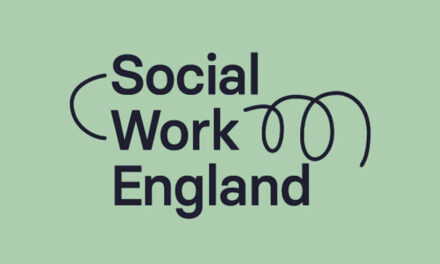The joint statement from the organisations documents their “significant concerns” on behalf of their respective members.
In the joint statement, the organisations said:
“BASW, SWU and UNISON have ongoing concerns about the fitness to practice (FTP) hearing delays announced by Social Work England (SWE) due to budget constraints, as reported in Community Care on 10 March 2024. The implications of this mean that case proceedings will increase over the next 12 months from the current average of just over two years. We consider two years’ timescale to be detrimentally excessive for all parties involved and note respondents to a recent Community Care poll agree the current case length is already too long.
“We have worked hard to seek improvements for social workers in the FTP process, however the hearing delays are ongoing and are now being extended. The time has now come for swift action, as hundreds of social workers are currently left in limbo. This is not acceptable from both public protection and personal wellbeing perspectives.”
It continued:
“Lengthy hearing delays can also have the unintended consequences. We frequently observe social workers unable to secure employment directly because of ongoing Social Work England FTP investigations, even when no restrictions have been imposed upon them. Employers learning of ongoing investigation decline to consider them as potential candidates. We believe this stagnant situation is also exacerbating the recruitment and retention crisis in social work3. Furthermore, the mental health toll for social workers subjected to lengthy FTP processes is intolerable and unfair. Some social workers electively stop working because the distress caused is so unmanageable.”
Setting out its expectations, the organisations called for “better fitness to practise” processes. In particular:
- A more collaborative and thorough investigation stage.
- Updating training and/or guidance for Case Examiners to make assessments from a neutral, less combative position, taking into account contextual factors.
- Develop alternative outcomes for cases which have been pending final hearing for multiple years.
- Adopt a more reasonable approach to voluntary removal from the register in which the protection of the public is considered pragmatically alongside the opportunity for registrants to voluntarily remove themselves.
Social Work England’s Response
In response, Colum Conway, SWE Chief Executive, wrote:
Delay at the hearing stage
We agree that delays in concluding cases that have been referred to a hearing are unacceptable and have said so publicly on a number of occasions. We have worked to ensure that you, and the social workers affected, have been made aware of the situation at the hearings stage. We continue to provide updates where we can. This matter has been discussed at our Board meetings which are public, and as you are aware we have raised this with the Department for Education (DfE) as our sponsor department.
We recognise the effect that delays have on all parties involved, including those social workers being investigated. We have a support process in place that we use when we have serious concerns about the wellbeing of a social worker (or any other party to the case) and we keep this process under review. In addition, we consider any serious concerns relating to the social worker’s health when we prioritise cases that have been referred for a hearing. We have recently reviewed our safeguarding processes and guidance to ensure that we continue to respond appropriately if any safeguarding concerns are identified by our staff and we have shared information with you about this work.
As you reference, we have received a more than 30% increase in concerns raised to us than was anticipated during the planning for our establishment. This has led to a greater number of cases being referred for a hearing year on year than was originally provided for. This increase was coupled with the volume and complexity of the cases we received from the Health and Care Professions Council (HCPC). Whilst we were able to use additional funding to resolve the cases received from the HCPC, it is clear to us that our ongoing resourcing is insufficient to deal with the new cases referred for, and awaiting a hearing. We have made a number of proactive changes to how we work, and to our legal framework, to assist in our continuing focus on efficient fitness to practise processes. These changes have had a demonstrable positive impact.
We note your reference to alternative outcomes for cases which are awaiting hearing. We have regularly discussed this with you and agree that this is something we can explore. In our business plan for 2024 to 2025 we make specific reference to this work, and we will “explore alternative options for disposing of cases referred for a hearing, and review the further use of options available in our legislation to support more efficient hearings processes”. We welcome further discussion with you, and other stakeholders, on how to take this forward over the coming year.
Our triage process
Our fitness to practise work is governed by a comprehensive legal framework, all of which has been subject to public consultation. This framework begins with the Children and Social Work Act 2017, which sets out our regulatory objectives to:
- To protect, promote and maintain the health, safety and wellbeing of the public;
- To promote and maintain public confidence in social workers in England;
- To promote and maintain proper professional standards for social workers in England
Our role in regulating social workers, on behalf of the public, is, therefore, wider than public safety alone.
Our regulations, rules, and guidance provide detail and clarity on how we will conduct our processes. The triage stage of our process is where we determine whether a concern we have received about a social worker may require further investigation. Our triage test, in our rules, sets out the way that we make this determination. We would welcome further discussion and examples of cases that you believe have been unreasonably progressed beyond triage.
Reviews of our work internally, and by the Professional Standards Authority (note standard 6), indicate that we are using the triage test correctly and in line with our duty to protect the public. We continue to review and revise our approach to the triage test to ensure that it is used appropriately. Of the approximately 1,900 concerns we received last year, over 66% were closed at the triage stage with no further action being taken.
Our investigations process
In relation to cases that are referred from triage to investigation, we note that you said that in your experience “… in almost all cases [Social Work England] only seek evidence supporting the allegation against the registrant”. We would welcome the opportunity to review the evidence to support your statement.
The purpose of our investigation stage is to investigate the concerns that have been identified at the triage stage and prepare the evidence required for our case examiners to determine what action should be taken. While the investigation will inevitably be focused on the regulatory concerns that have been identified this does not mean that we only gather evidence that supports the concerns.
We have published a number of pieces of guidance and explanation on our website to help social workers subject to investigation understand how to engage successfully with our process. As we have described in our guidance, our investigators are impartial. They do not take the side of a social worker or the person that raised the concern. Their role is to manage the progress of a case, to gather all relevant information, and to support the people involved.
We endeavour to engage social workers in the investigation process so that we can understand their position and any contextual factors that may be relevant to the concerns raised. In accordance with our rules, we notify social workers within 14 calendar days of a triage decision to refer concerns to the investigation stage, and we invite social workers to make any comments they wish to at the outset of the investigation. The social worker’s response (if provided) may inform the enquiries that we make during the investigation. In addition, in most cases[1], at the end of the investigation, we share a copy of the investigation report and the evidence that we have gathered with the social worker concerned and provide a further opportunity for them to provide comments on the case. We will always provide the case examiners with copies of any response that the social worker has provided and any information and evidence that the social worker feels is relevant to the case so that this can be considered by the case examiners.
We agree that more can be done to ensure that investigators have all the information they need to allow case examiners to make a decision, but this requires everyone involved in the investigation to engage consistently and fully. We have undertaken significant work with employers to improve our engagement with them. As set out in our business plan for 2024 to 2025, we will continue to build on this work and the work that we are doing to improve the timeliness, efficiency and effectiveness of our triage, investigations and case examiner processes.
Our case examination process
Our published guidance for case examiners is clear that our decisions at the case examiner stage must be impartial, consistent and protect the public. The guidance aims to support our case examiners to comply with these requirements. Our reviews of the quality of decisions taken by case examiners, and reviews undertaken by the Professional Standards Authority (standard 16), do not indicate that there is a problem with decision making at the case examination stage.
Our accepted disposal powers, legislation that is currently unique to us, is increasingly used to ensure that cases that do not need referral to a hearing, but where a social worker requires restrictions on their practice or warning about their future conduct, are concluded appropriately and effectively. Of the 429 cases decided by the case examiners in 2023 to 2024, 21% were closed via the accepted disposal route, 50% were closed with no further action or another outcome, and 29% were referred for a hearing. While we recognise that cases closed with no further action at the case examiner stage may provide opportunities for learning about the application of the triage test, we do not agree that it follows that the case should not have been investigated. Instead, this shows that the investigation has provided the case examiners with the information they need to be satisfied that the concerns raised do not raise fitness to practise issues. This aligns with our duty to ensure public protection.
We acknowledge that employers sometimes choose not to employ social workers who are the subject of ongoing fitness to practise investigations, despite there being no interim restrictions on their practice. In these circumstances we offer to write to any prospective employer to confirm that there are no restrictions on the social worker’s practice. In addition, in 2021 we worked with BASW and Unison to co-produce our guidance for employers, which clearly states that a social worker can continue to practise during a fitness to practise investigation, unless interim restrictions have been imposed. Since 2021 we have hosted 9 national sessions and held many conversations locally to explain the fitness to practise process to both social workers and employers. We are happy to support any work that BASW, Unison and the Social Worker’s Union plan to do, to assist the sector to further address this issue.
Voluntary removal during a fitness to practise investigation
We note your comments regarding the voluntary removal (VR) process for social workers who wish to leave the register whilst the fitness to practise process is ongoing. Of the 44 applications received and considered since January 2023, 15 have been granted and 29 refused. Our website contains a comprehensive explanation of how the VR process works, and our review of decisions made in relation to VR has not raised general concerns about outcomes. The Professional Standards Authority (standard 16) did not raise any concerns about our VR process in their most recent review of our performance. While we agree that there is important work to be done to identify potential options for alternative disposal of cases awaiting a hearing and have committed to undertaking this work in our business plan, VR should only be used in appropriate cases where there is no public interest in the fitness to practise process continuing.
Registration renewal and continuing professional development
We do not have any evidence through our work that our renewal of registration processes causes difficulties for the overwhelming majority of social workers who complete their renewal successfully each year.
As you are aware through the many discussions and presentations you have had with us, each year we have taken a number of actions to ensure that social workers can complete the registration renewal process successfully without undue burden. Last year over 98% of social workers renewed their registration. This does not suggest to us that the process is difficult for social workers, and we have worked hard each year to refine our approach to renewal appropriately.
As a public body, we always look at ways to run our organisation in an efficient manner and ensure our resources are focused in the right way. However, we spend very little on the process of renewal, and on our registration process generally. This was approximately 5% of our total budget last year. We would welcome further discussion on this matter as the general feedback we have is positive and that our renewal and CPD approach is simple, proportionate, and successful in allowing social workers to meet their legal requirements and demonstrate to the public that they remain capable of safe and effective practice.
Each regulator operates a different set of requirements dependent on their regulatory requirements, and therefore the frequency of their re-registration processes will also differ. Many other regulators operate a process of annual renewal, including the GOC and GDC. We consulted publicly on our approach to renewal in 2019, and consider that annual renewal is an important way of strengthening and maintaining our relationship with those on the register, so that we are all clear on our respective roles and requirements.
Similarly, regulators’ approaches to CPD are different and take into account the nature of the professions being regulated, and the legislative and standards requirements of those bodies. For example, the continuing fitness to practise requirement of nurses are different to doctors, and the requirements for social workers in Wales are different to those in Scotland. We consider our approach proportionate and keep it under review.
We are committed to continue reviewing our regulatory approaches, and have set out in our business plan that we will consider our approach to renewal and CPD. We look forward to discussing this work with you and our other stakeholders over the coming months.
Funding our work
Finally, and as you are aware, we continue to look at all options for ensuring that our resources are sufficient to carry out our work as the regulator for social workers in England.
We have agreed a baseline with the Department of Education as our lead sponsor department which will remain under review against policy goals and spending priorities. This is in line with normal practice. We intend to review our current fee structure within this strategic planning period 2023 to 2026. We understand the financial pressures that registrants face, which is why we continue to look to make efficiencies. Any proposed increase to our fees would involve engagement with the profession and a full public consultation.
We hope this statement helps provide a greater understanding of our work, and we look forward to meeting with you in person to discuss these matters further.
Disclaimer: The accuracy and information of news stories published on this website is accurate on the date of publishing. We endeavour to update stories if information change. You can contact us with change and update requests. Where possible, we will link to sources. Content on this website is for guidance purposes only. We cannot accept any responsibility or liability whatsoever for any action taken, or not taken. You should seek the appropriate legal advice having regard to your own particular circumstances.

Restoration Courses
Courses suitable for any health and social care practitioner who is considering making an application for restoration back onto the register.

Insight & Remediation
Courses that are suitable for any healthcare practitioner who is facing an investigation or hearing at work or before their regulatory body.

Probity, Ethics & Professionalism
Courses designed for those facing a complaint involving in part or in whole honesty, integrity and /or professionalism.







Recent Comments